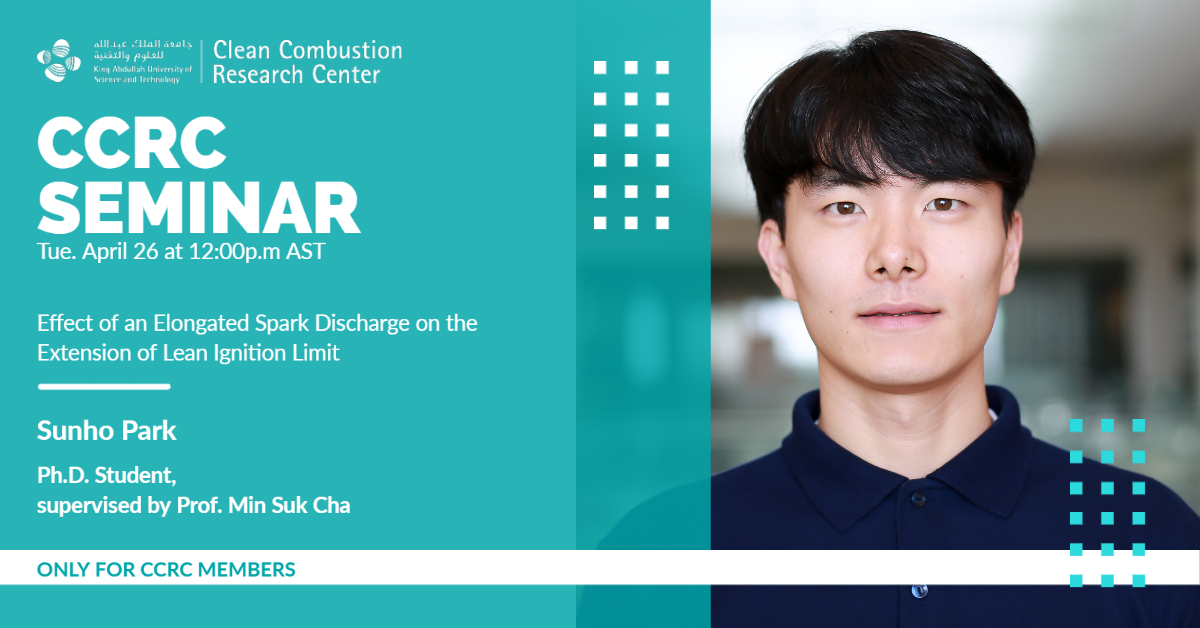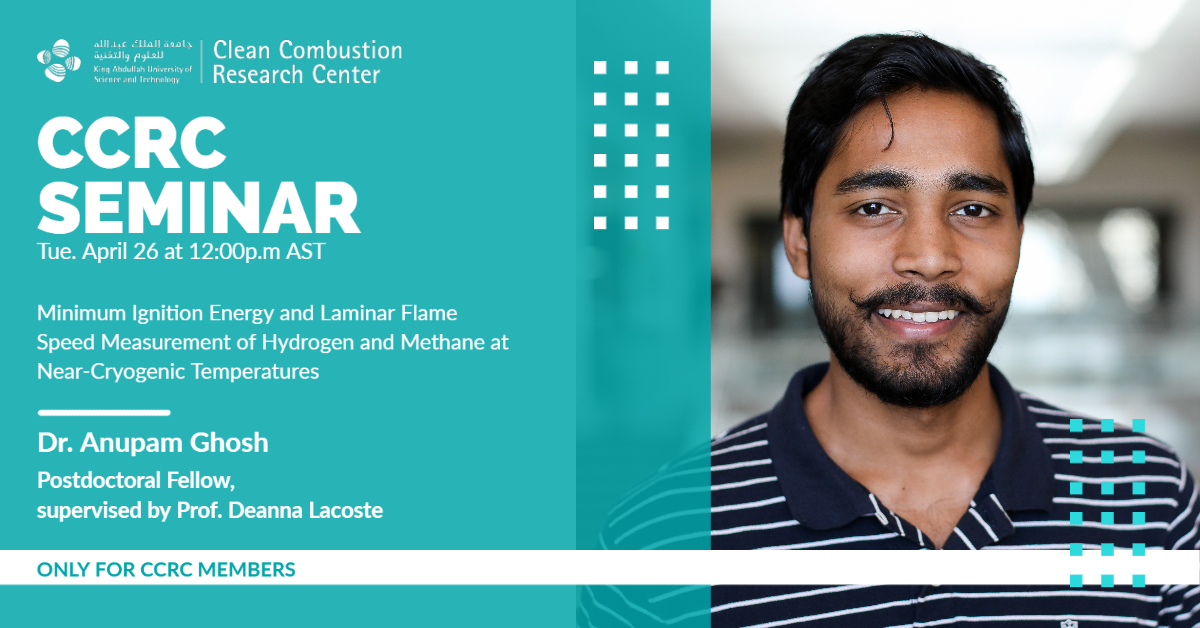


The talks are on:
Sunho Park
Ph.D. Student, supervised by Prof. Min Suk Cha

Abstract: We are facing regulations of emission standards
and stringent fuel economy, which are related to the climate change issue.
Following these regulations, lean-burn combustion technology is considered a
smooth transition toward a carbon-neutral society. The CO2 emission can be
mitigated by the efficient use of fossil fuels. However, the lean ignition
limit should be extended as much as possible to limit NOx emission by reducing
flame temperature. Lately, the high-intensity tumble flow with the conventional
spark plug (central high-voltage electrode and ‘J’ shaped ground electrode) was
used to stretch the spark discharge to extend the lean ignition limit and
reduce the combustion duration in the spark ignition (SI) engine. In this
paper, we are introducing a central high-voltage electrode and disk-shaped electrode
to mimic the upper surface of a piston head as a ground, called pin-to-disk
electrode. We designed a small constant volume combustion chamber (CVCC) and
pin-to disk electrode with the various interelectrode gap (d). As a result, as
the d increases, the lean ignition limit was extended, and the combustion
duration was shortened. We also found that the early flame kernel was formed
near the cathode side regardless of the voltage’s polarity. We designed a
horizontal high-speed jet to mimic the tumble flow, which was utilized to
determine the effect of stretched spark discharge on the lean ignition limit
and combustion duration. The effect of voltage’s polarity on the lean ignition
limit played an important role, and the combustion duration was governed by the
intensity of the tumble flow. Note that, we could not observe restrike
phenomenon, which demonstrates better applicability for the SI engine by
minimizing a cyclic-variation due to misfire.
Bio: Sunho Park obtained his Bachelor's degree in the double major of Mechanical Engineering and Graphic Arts Information Engineering from Pukyong National University in 2017 and a Master's degree in Mechanical Engineering in 2019 from the same university. He then joined Plasma Assisted Combustion Laboratory at CCRC in 2020. And he is pursuing a Ph.D. working with Prof. Min Suk Cha focusing on flame response with electric fields.
Dr. Anupam Ghosh
Postdoctoral Fellow, supervised by Prof. Deanna Lacoste

Abstract: The primary objective of this study is to measure the minimum ignition energy (MIE) and laminar flame speed of hydrogen and methane flames at near-cryogenic temperatures and atmospheric pressure. Initial fuel-air mixture temperatures as low as 160 K were considered. The experimental methodology was validated by comparing the results obtained with those from previous studies available in the literature. First, the laminar flame speed as a function of the equivalence ratio followed the same trend at 295 K and 240 K for both fuels. Second, when the fuel-air mixture's temperature was decreased, the laminar flame speed decreased linearly, and the MIE increased linearly for both fuels at a fixed equivalence ratio. The rate at which the MIE changed was higher for hydrogen-air (-7.9 μJ/K) than for methane-air (-3.4 μJ/K). The rate at which the laminar flame speed decreased was higher for hydrogen (0.89 cm/s/K) than methane (0.18 cm/s/K). Overall, this study provides valuable information on the minimum ignition energy and laminar flame speed of methane and hydrogen flames at near-cryogenic temperatures, which can be helpful for the design of cryogenic storage systems and validate chemical kinetic models.
Bio: Dr. Anupam Ghosh joined CCRC in May 2021 as a postdoctoral fellow in the group of Prof. Deanna A. Lacoste. He obtained his PhD and Master in Mechanical Engineering from Indian Institute of Science (India). His PhD work highlighted the potential of methanol as an alternative fuel for both CI engine and SI engine. His current interests include experimental and numerical studies on safety of cryogenic fuel storage system. He is focusing on fundamental flame characterization of various fuels at near-cryogenic temperatures.